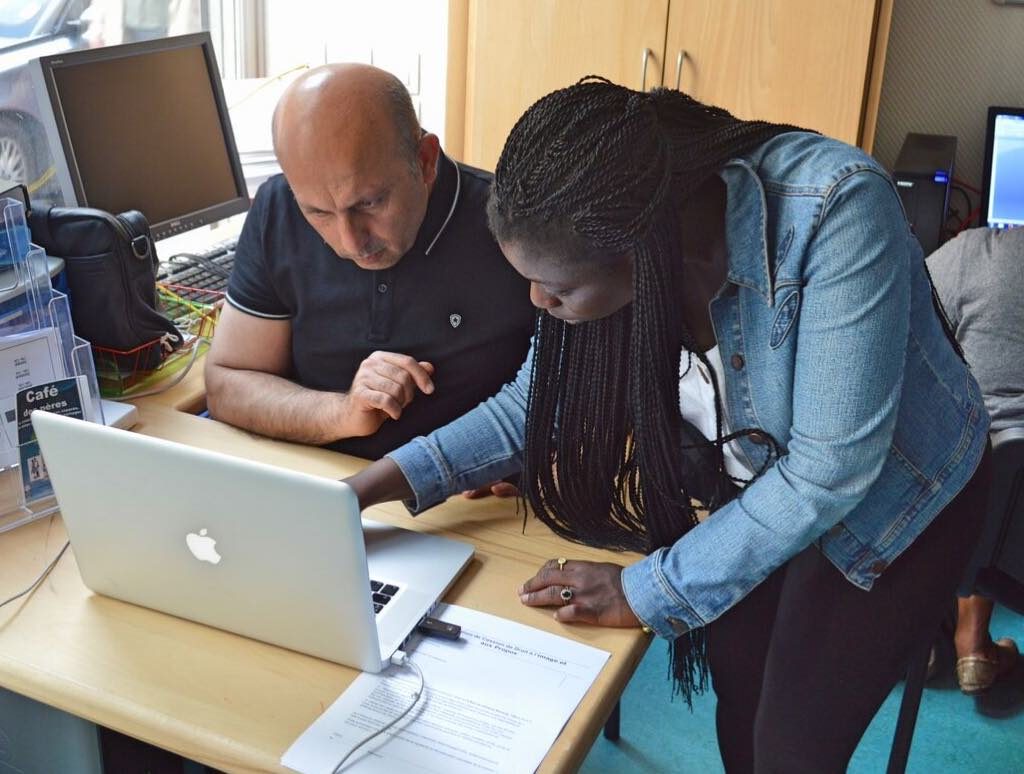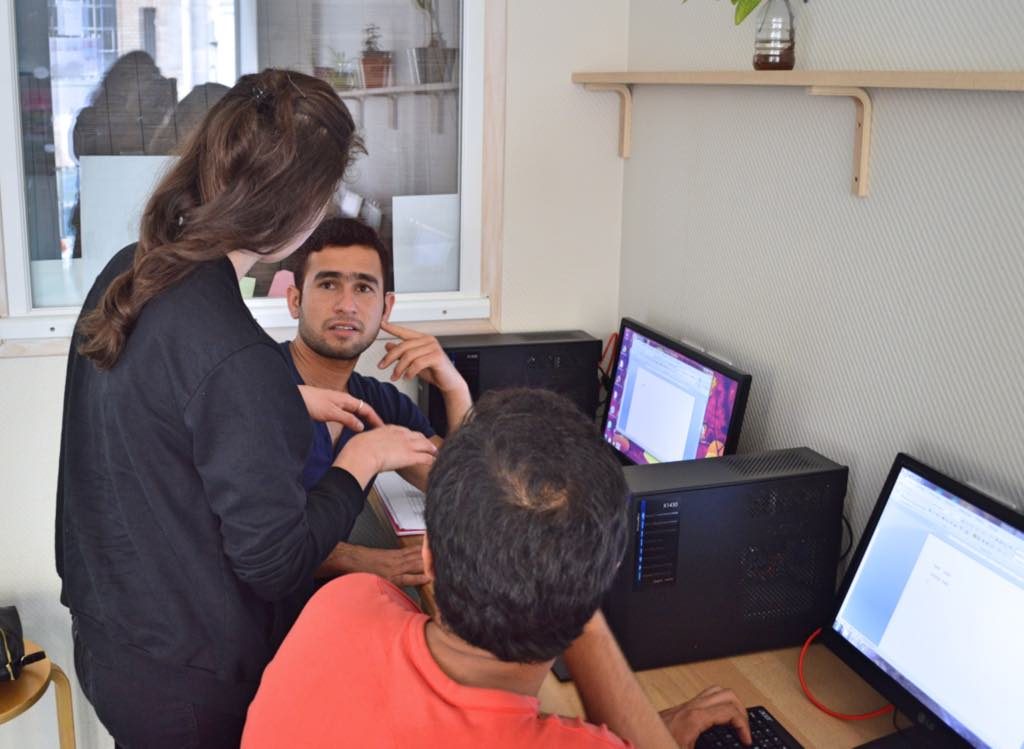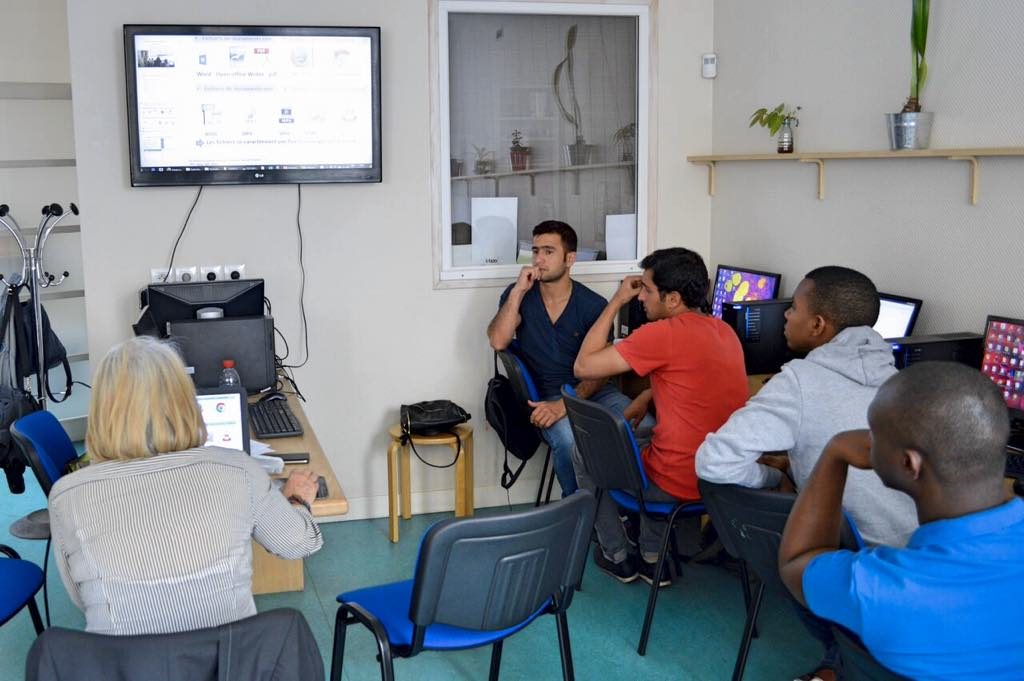
While governments around the world are trying their best to exclude immigrants and even eject them from their borders once they have arrived, some individuals are taking the opposite tack and going out of their way to help them integrate into the countries they have ended up living in at the end of often terrifying journeys. An association called Konexio, founded in Paris last year by an energetic young American woman named Jean Guo, is one of those groups making an effort to help. Its mission is to help refugees find jobs by teaching them computer skills and coding.
Guo, 25, a former Stanford student and consultant in San Francisco, came to Paris on a Fulbright scholarship in 2015. Through her research in the fields of economics and health, specifically on the topic of migrant health, she became interested in the difficulties refugees have in becoming part of the new societies they have landed in. While many programs help them learn the local language, that did not seem to be enough. When they could find work, it was usually in low-skilled, low-paid, unsatisfying jobs. Her idea was to teach them coding, a field still full of opportunities, but it soon became clear that many of the refugees lacked even the most basic computer skills; some had never even touched a computer before.
Adapting to the situation, Konexio now starts at square one and offers basic and intermediate computer courses to bring students up to speed before they get started with coding.
Most students are currently waiting for a decision to be made by the French government on their requests for asylum. One, Atif, from Sudan, told me he had been imprisoned and tortured at home and managed to escape from the prison hospital. He has bladder and vision problems resulting from prison beatings. Another, Abdoulaye, from the Côte d’Ivoire, lost his leg after being shot by his half-brother, a member of a rebel group.
In the short time it has existed, Konexio has set up a team of 12 regular volunteers, including two other Fulbright scholars, Program Director Binta Jammeh and Coordinator Elise Hansen, and 30 other volunteers. Some students are also volunteers or teachers, and some volunteers take the courses, an overlap that helps blur the hierarchical distinction between helpers and those being helped. “We are very focused on helping individuals learn,” says Guo, “but we also want people to be able to form a community.” Konexio also has a network of over 20 business partners.
 So far some 50 students have passed through its courses, and a few have gone on to graduate programs or internships. There is a long waiting list of students from the six or seven language schools Konexio works with (students must have a basic level of French) wanting to take its courses, so Guo continues to seek grants and corporate and governmental partners to help expand the course offering, put the organisation on a secure financial footing and ensure its future viability. A Ulule crowdfunding campaign is also underway to raise funds to finance further development and part-time salaries for teachers. There are only 10 days left to help them meet their goal; to donate, click here. To volunteer or learn more, visit Konexio‘s Web site.
So far some 50 students have passed through its courses, and a few have gone on to graduate programs or internships. There is a long waiting list of students from the six or seven language schools Konexio works with (students must have a basic level of French) wanting to take its courses, so Guo continues to seek grants and corporate and governmental partners to help expand the course offering, put the organisation on a secure financial footing and ensure its future viability. A Ulule crowdfunding campaign is also underway to raise funds to finance further development and part-time salaries for teachers. There are only 10 days left to help them meet their goal; to donate, click here. To volunteer or learn more, visit Konexio‘s Web site.

